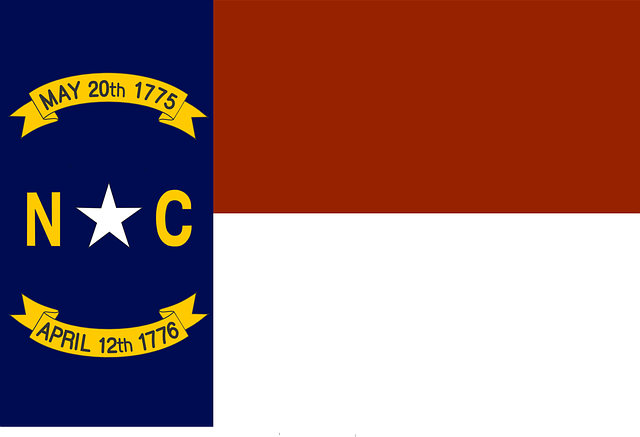Otto's Automatic Defense System provides cutting-edge protection against spam calls in North Carolina by leveraging advanced algorithms and real-time analysis. To stop persistent spam calls, residents should familiarize themselves with the state's Telephone Consumer Protection Act (TCPA) and consult a reputable spam call law firm North Carolina or spam call lawyer. Additionally, blocking numbers, registering on the National Do Not Call Registry, and implementing call blocking technologies are effective measures. Engaging legal experts ensures tailored advice, protection, and guidance in navigating spam call laws to safeguard privacy and peace of mind.
Unwanted automated calls can be a persistent nuisance, but Otto’s Automatic Defense System offers a powerful solution. This comprehensive guide explores how Otto fights back against spam calls in North Carolina, leveraging the state’s stringent Spam Call Laws. We’ll walk you through implementing and protecting Otto’s defense mechanism, providing strategies to stop unwanted automation and highlighting top legal representation options with expertise in TCPA law. Discover how to reclaim control over your communications and say goodbye to intrusive spam calls once and for all, right here in North Carolina.
Understanding Otto's Defense System: A Comprehensive Guide
Otto’s Automatic Defense System is a comprehensive solution designed to safeguard individuals in North Carolina from unwanted automation, particularly spam calls. This innovative system operates by employing advanced technologies to identify and block malicious automated phone calls, ensuring residents can enjoy peace of mind while maintaining privacy.
By leveraging sophisticated algorithms and constant updates on known spam patterns, Otto’s Defense System stays ahead of the curve. It offers a multi-layered approach to protection, including real-time call analysis, smart filtering mechanisms, and immediate response protocols. This means that when a spam call is detected, the system takes swift action, blocking or redirecting the call before it disrupts your day. For those seeking relief from relentless spam calls, understanding and leveraging Otto’s Defense System could be the first step towards reclaiming control over their communication channels.
The Legal Framework: Spam Call Laws in North Carolina
In North Carolina, combating unwanted automated calls is protected and regulated under the Telephone Consumer Protection Act (TCPA). This federal law, enforced by the Federal Communications Commission (FCC), provides guidelines on how businesses can conduct telemarketing activities and sets restrictions on automated or prerecorded calls. In line with these regulations, residents of North Carolina have various options to stop spam calls.
If you’re seeking to understand how to stop spam calls North Carolina, it’s beneficial to consult a spam call law firm North Carolina or engage spam call lawyers North Carolina. These legal experts can guide individuals on their rights and available courses of action when dealing with persistent unwanted calls. By understanding the spam call laws North Carolina, residents can take proactive measures, including filing complaints with relevant authorities, seeking legal redress, and employing blocking technologies to safeguard their peace of mind and privacy.
Strategies to Stop Unwanted Automation: A Step-by-Step Approach
Unwanted automation can be a nuisance, especially in the form of spam calls. If you’re experiencing this issue in North Carolina, knowing how to stop them is crucial. Here’s a step-by-step approach to reclaiming your peace of mind. Firstly, identify the source; many modern devices have settings that allow you to block specific numbers or types of calls. Secondly, consider registering your number on the National Do Not Call Registry, which has federal legal backing. This simple step can significantly reduce the volume of unsolicited calls.
For more robust protection, consult a spam call law firm in North Carolina; these experts specialize in TCPA (Telecommunications Consumer Protection Act) compliance and can advise you on legal options. They may suggest implementing advanced call blocking technologies or even taking legal action against persistent spammers. Remember that each case is unique, so tailored advice from experienced lawyers is invaluable when navigating the complex landscape of consumer protection laws.
Choosing the Right Legal Representation: Spam Call Lawyers in NC
When facing a deluge of spam calls in North Carolina, knowing how to stop them is crucial. One effective step is to consult with an experienced spam call lawyer or spam call law firm in NC. These legal professionals specialize in navigating the Telephone Consumer Protection Act (TCPA) and can provide tailored advice based on your specific situation.
Choosing the right lawyer for TCPA North Carolina is essential. Look for firms with a proven track record of successfully defending clients against unwanted automation. Their expertise will be invaluable in helping you understand your rights, negotiating with telemarketers, or even litigating if necessary. Remember, understanding how to stop spam calls North Carolina involves more than just blocking numbers; it requires legal recourse to protect your privacy and peace of mind.
Implementing and Protecting Otto's Automatic Defense Mechanism
Otto’s Automatic Defense System is a game-changer when it comes to protecting users from unwanted automation, especially in the form of spam calls. To implement and ensure its effectiveness, North Carolina residents have several options. One crucial step is to familiarize oneself with the state’s Spam Call laws, also known as TCPA (Telephone Consumer Protection Act) regulations. Engaging the services of a reputable Spam Call law firm North Carolina or consulting with Spam call lawyers North Carolina can provide guidance on how to stop spam calls and enforce these laws.
These legal experts can assist in setting up robust defenses against automated calling campaigns, ensuring that Otto’s system operates seamlessly while adhering to the TCPA. By combining technological safeguards with legal knowledge, users can effectively protect their privacy and peace of mind, making North Carolina a safer place to navigate the digital landscape without relentless spam calls.






